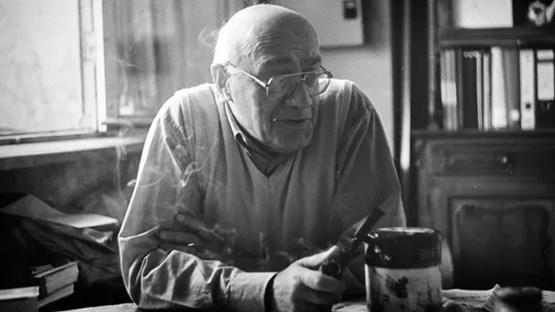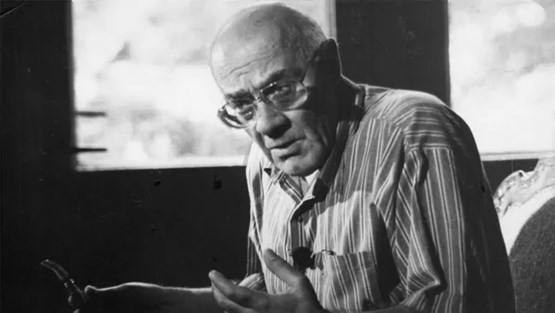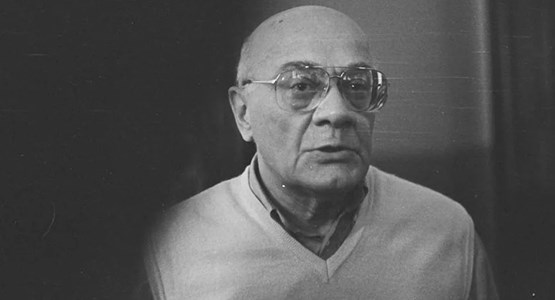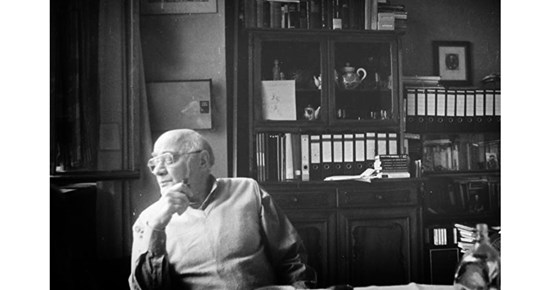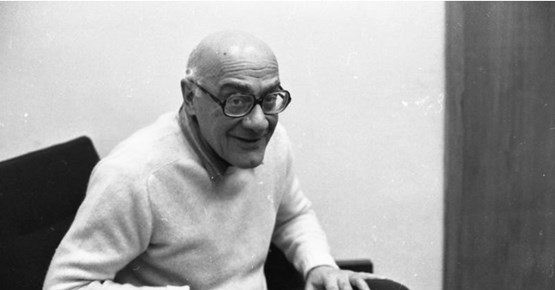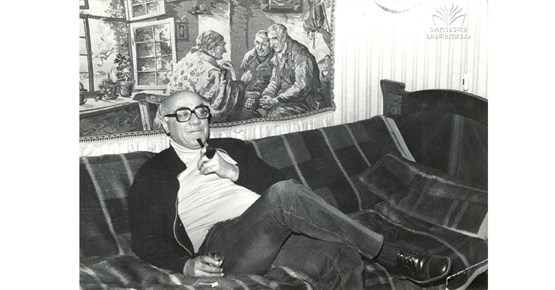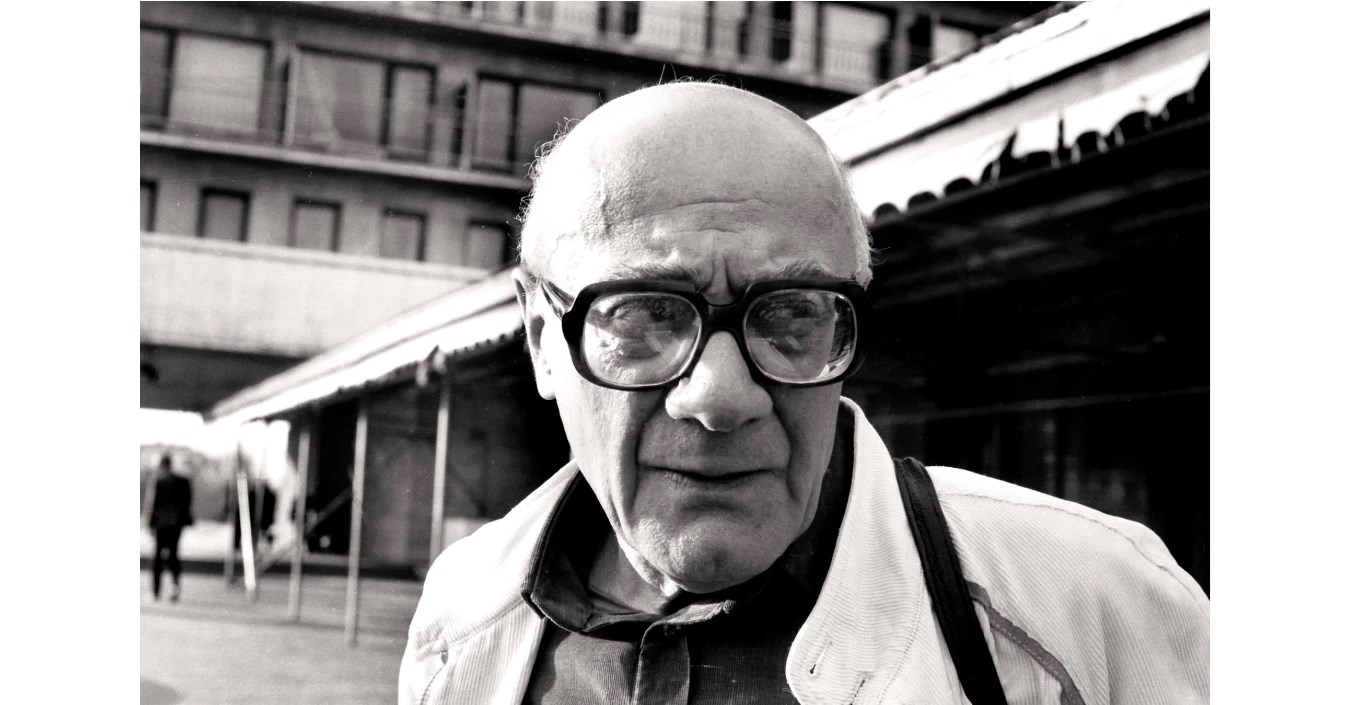
Repeating Mamardashvili | Essay 13 – Temporalities - A Philosopher, Lost
'I use what I've got. Contrary to what people say, using the first-person in films tends to be a sign
of humility: All I have to offer is myself.'
[Chris Marker interviewed by Dolores Walfisch, 1996]
'The urgent nature of "unthinkability" and our human need to live through it (to experience it to the end, with no guaranteed residue) before any understanding is possible, links Mamardashvili with two of his predecessors in the history of Russian thought, also non-conforming personalists who were shaped by the European philosophical tradition into citizens of an unknown country: Leo Tolstoy and Mikhail Bakhtin. For Tolstoy, the unthinkable is death. For Bakhtin, it is the live event. For Mamardashvili, it is thinking itself.'
[Preface to A Spy for an Unknown Country: Essays and Lectures by Merab Mamardashvili]
'All I have to offer is myself,' as Chris Marker put it in an interview in 1996 about his film 'Level Five'. This myself, analogous to Merab Mamardashvili's citizen of an unknown country, is to be explored, to be put into thought and action. So, let's join the filmmaker Chris Marker in Tbilisi in March 1988, where he was filming a banquet, a supra for his thirteen 26-minutes episodes called 'L'Héritage de la chouette' [The Owl's Legacy], a TV mini series released in 1989. Apparently, six people were invited in Tbilisi, a few of them had already briefly appeared in the first and second episode, but it is six people who we see in the thirteenth episode with the title 'Philosophie ou le Triomphe de la Chouette' [Philosophy, or the Triumph of the Owl]. In alphabetical order these six are: Leonid Chelidze, Vyacheslav Ivanov, Lika Kavzharadze, Otar Lordkipanidze, Merab Mamardashvili, and Givi Margvelashvili. How these six were chosen is unknown to me, and unfortunately, I have also only seen the edited version of this gathering, and not the entire meeting; just those bits and pieces that made it into three episodes of 'L'Héritage de la chouette'.
Each of Chris Marker's thirteen episodes takes up an ancient Greek concept and investigates its – sometimes possibly fabricated – influence on (Western) society and thought. These thirteen concepts are: SYMPOSIUM, OLYMPICS, DEMOCRACY, NOSTALGIA, AMNESIA, MATHEMATICS, LOGOMACHY, MUSIC, COSMOGONY, MYTHOLOGY, MISOGYNY, TRAGEDY and finally, PHILOSOPHY. It is somehow exactly this last episode, which feels the most tangible of all, despite carrying philosophy, a discipline sometimes perceived as rather abstract, in its title. Chris Marker, as narrator in disguise, offers two short explanatory comments during one of the two longer excerpts of the conversation:
So, Chris Marker situated the banquet, the symposium in Tbilisi differently to the symposia that were filmed in Athens, Paris, and Berkeley. One of the few places on earth where words had a meaning. But, why? Maybe, because he himself seemingly felt a tangibility and an acuteness during the conversation and its possible impact in Tbilisi. At a specific time and place. As if Karl Marx's last thesis on Feuerbach, – 'Die Philosophen haben die Welt nur verschieden interpretiert; es kömmt drauf an, sie zu verändern.' [The philosophers have only interpreted the world, in various ways; the point is to change it.] – had come to life.
The toast, framed by the narrator's two interventions, is made, as already announced, by Leonid, Leonid Chelidze:
Leonid Chelidze: Let's drink to understanding, to Bakhtin, to dialogue. Dialogue is a fashionable word, even in politics. Gorbachev uses it. But it was introduced into the Soviet language directly or indirectly through Bakhtin's writings. It is now an everyday word. We talk about the necessity of a dialogue for changing centralism and monopoly towards pluralism, towards a plurality of viewpoints. Let's drink to a life a little more… dialogical.
It is one of the two core pieces from the Tbilisi symposium in 'L'Héritage de la chouette'; the second one, on 'the dignity of death', was also voiced by Leonid Chelidze. Two central propositions, spoken by one out of six. By a man, who I had never heard of before.
And despite two weeks of inquiry, I still know pretty much nothing about him. I know that Leonid Leonidovich Chelidze wrote a dissertation with the title 'Формирование научного понимания социальной природы культуры' [Developing a Scientific Understanding of the Social Nature of Culture] in the philosophical sciences, submitted in 1974. In the National Parliamentary Library of Georgia a second publication – 'Что такое история?' [What is history?] – is listed, published by the Georgian SSR Academy of Sciences, Institute of Philosophy in 1978. In an article by Bidzina Ramishvili, he is mentioned as a philosopher, who had been one of the participants of Givi Margvelashvili's home literary evenings.
I tried to ask around, if anyone knew anything. I tried to search his name online in Georgian and Russian spelling and in different transcriptions into the Latin alphabet. And all that I found out, I have just listed above. So, I will keep researching, will keep looking. There must be something in the archives! A person cannot just disappear like this, no? Without a trace, with as little a trace. A philosopher, lost.
Postscript: There is one more reference I found online. A text about the 19th Congress of the Communist Party of the Soviet Union, mentioning a letter written by a communist Leonid Chelidze (Armavir). In this letter to Stalin he supposedly demands to know why the 19th Congress had not been convened much earlier… This could be the philosopher Leonid Chelidze's father. His patronym would support this possibility. But, I could not verify this information just yet. When checking the website, I was more than astonished to find out, that its main contents were on garden plants, interesting information about flowers, perennial flowers and shrubs. If there are more hidden links beyond gardening, I do not know, I have not found any yet. Nor, who is actually responsible for this website. And, I am really not quite sure how gardening and Soviet history go together, but right now, there is another issue at stake…
Author: Katharina Stadler
Chris Marker, L'hèritage de la chouette, Èpisode 13: Philosophie ou le Triomphe de la Chouette, France/Greece, production: Attica Art Productions/La Sept/FIT Productions, 1989. (runtime: 26 min)
Marx, Karl. Thesen über Feuerbach. https://www.marxists.org/deutsch/archiv/marx-engels/1845/thesen/thesfeue-or.htm. 1845.
რამიშვილი, ბიძინა [Ramishvili, Bidzina]. გივი მარგველაშვილი 85 წლის გახდა [Givi Margvelashvili turns 85]. https://www.radiotavisupleba.ge/a/giwi-margwelaschwili-85/24805647.html. 2012.
Slaughter, Alisa, and Julia Sushytska, eds. A Spy for an Unknown Country: Essays and Lectures by Merab Mamardashvili. Stuttgart: ibidem-Verlag, 2020.
Walfisch, Dolores. Interview with Chris Marker. https://www.closeupfilmcentre.com/vertigo_magazine/volume-1-issue-7-autumn-1997/interview-with-chris-marker/. 1996/1997.

